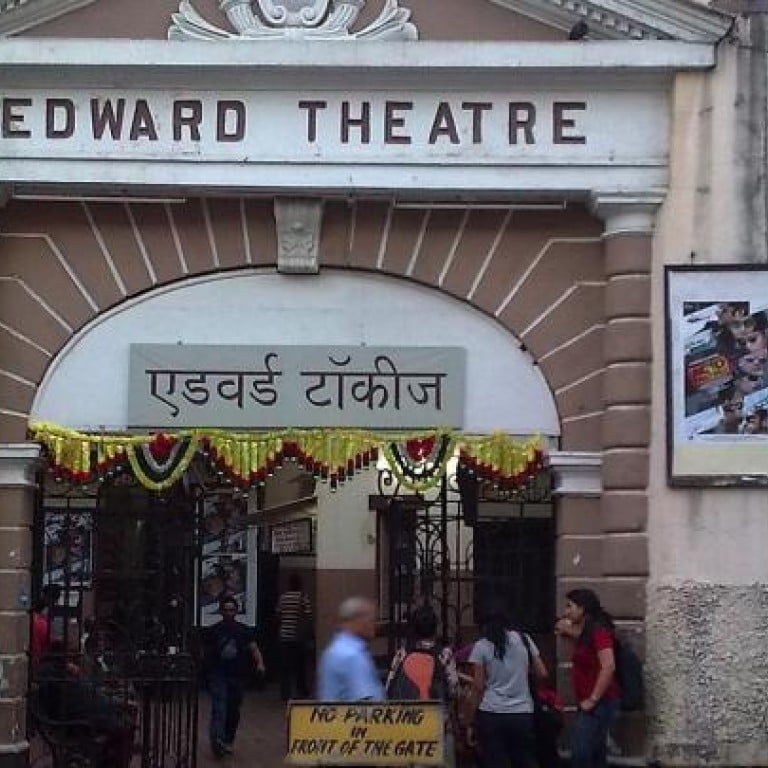
Postcard: Mumbai
It's a fact that most of India celebrates the holy Khan triumvirate (Aamir, Salman and Shah Rukh) on celluloid.
It's a fact that most of India celebrates the holy Khan triumvirate (Aamir, Salman and Shah Rukh) on celluloid. But there are still people devoted to action movies - especially those colloquially known as "masala movies" - and family flicks starring almost forgotten heroes from the 1980s, such as Jackie Shroff, Sunny Deol and Mithun Chakraborty. These viewers patronise the old single-screen cinema halls in Mumbai, some with English names (Alfred, Strand, Lido, Capitol) and others with Hindi ones (Gulshan, Kohinoor, Roshan).
Many of these theatres are landmarks that lend their names to the area in which they are located. Unfortunately, many others have been earmarked for demolition, to make way for a more commercially viable property or a modern multi-screen theatre.
Multiplexes are just over a decade old in Mumbai, but they have replaced single-screen cinemas with astonishing speed: more than 50 such cinemas are believed to have shut down in the past decade alone in Mumbai. To add to their woes, the state government (for reasons unknown) has also been providing tax concessions to multiplexes.
Multi-screen theatres are not new to Mumbai, of course, but the sleek multiplexes with their plush seating and a cornucopia of eating and even shopping options make a perfect evening out for the (upper middle-class) family and so are far greater threats to the remaining single-screen cinema halls.
Although single-screen theatres are spread all over the city, pockets in south Mumbai are particularly famous for having them. The most popular of these is the area known as Pila Haus (a linguistic corruption of Play House) that was the original home of regional theatre in the city. Its main road, very close to the red-light area of Kamathipura, has a buzz through the day; even in the haze of the mid-afternoon sun, there are loyal viewers who find their way there to watch old favourites at a small fraction of the cost they would pay for a ticket at a multiplex.
Multiplexes with their plush seating...eating and even shopping options, make a perfect evening out for the (upper middle-class) family
These cinemas have their own rules: there are separate seating areas for women (although not many frequent such places), benches for people to sleep on, and vendors of scrambled eggs with bread and suspiciously bright orange beverages just outside.
It is possible to walk to the screening room and chat with the projectionist who has perhaps been employed there all his working life and is now painfully aware he is working for an almost empty hall. Chandrahas Choudhury writes in his novel, , about "Babur", the local word for the Bauer film projector, which "for 30 years had been standing in the same place in the same room, breathing out four shows a day". A bit like the grandfather's old clock from the song, which stood 90 years on the floor, ticking until the day he died.
A few - just a few - of these glorious theatres have been blessed with a revival. Prominent among them is the Opera House, indeed a venue for opera performances before it was converted into a movie hall. Roxy has found itself a shiny new steel and chrome avatar, and Edward Theatre, which dates back to 1918, now wears a fresh coat of paint and screens world movies on Thursdays. In addition, Metro and Novelty have been bought over by Big Cinema (owned by Reliance MediaWorks Ltd) and given a fresh lease of life as multiplexes.
The rest, however, wear a dilapidated, defeated look and seem to be waiting for the final blow. Those grand sweeping staircases, high ceilings, capacious halls meant to seat hundreds, and canteens known for their samosas and sandwiches - they exist no more.
A pity, because it also means several architecturally significant art deco buildings have given way to bland, one-size-fits-all multiplexes. Appreciate these institutions while they are still around.

